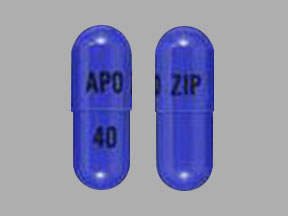
Geodon Coupons & Savings Card – Discount Prices from $19.19
Brand for: Ziprasidone
My prescription
Edit
40MG, Ziprasidone (60 Capsules)
Select pharmacy

CVS
$24.77
COUPON PRICE
Walmart
$19.19
COUPON PRICE
Walgreens
$23.22
COUPON PRICE
Albertsons
$30.55
COUPON PRICEGeodon savings card
Show this card to your pharmacist
Walmart
$19.19
BIN
ID
PCN
GRP
019876
LHDD9F75EC
CHIPPO
LHX
Powered by
Related atypical antipsychotics prescriptions
More prescriptions for schizophrenia
Related atypical antipsychotics prescriptions
More prescriptions for schizophrenia
Geodon (Ziprasidone) dosage forms
Dosage Quantity Price from Per unit 20MG 1 Capsule $2.74 $2.74 20MG 20 Capsules $7.34 $0.37 20MG 40 Capsules $12.19 $0.30 20MG 60 Capsules $17.03 $0.28 20MG 80 Capsules $25.58 $0.32 40MG 60 Capsules $19.19 $0.32 40MG 1 Capsule $2.78 $2.78 40MG 20 Capsules $8.06 $0.40 40MG 40 Capsules $13.63 $0.34 40MG 80 Capsules $26.92 $0.34
| Dosage | Quantity | Price from | Per unit |
|---|---|---|---|
| 20MG | 1 Capsule | $2.74 | $2.74 |
| 20MG | 20 Capsules | $7.34 | $0.37 |
| 20MG | 40 Capsules | $12.19 | $0.30 |
| 20MG | 60 Capsules | $17.03 | $0.28 |
| 20MG | 80 Capsules | $25.58 | $0.32 |
| 40MG | 60 Capsules | $19.19 | $0.32 |
| 40MG | 1 Capsule | $2.78 | $2.78 |
| 40MG | 20 Capsules | $8.06 | $0.40 |
| 40MG | 40 Capsules | $13.63 | $0.34 |
| 40MG | 80 Capsules | $26.92 | $0.34 |
| 60MG | 1 Capsule | $2.87 | $2.87 |
| 60MG | 20 Capsules | $9.90 | $0.49 |
| 60MG | 28 Capsules | $12.87 | $0.46 |
| 60MG | 30 Capsules | $13.61 | $0.45 |
| 60MG | 40 Capsules | $17.31 | $0.43 |
| 60MG | 60 Capsules | $24.71 | $0.41 |
| 60MG | 80 Capsules | $29.45 | $0.37 |
| 80MG | 1 Capsule | $2.82 | $2.82 |
| 80MG | 20 Capsules | $8.91 | $0.45 |
| 80MG | 28 Capsules | $11.47 | $0.41 |
| 80MG | 30 Capsules | $12.11 | $0.40 |
| 80MG | 40 Capsules | $15.32 | $0.38 |
| 80MG | 60 Capsules | $21.73 | $0.36 |
| 80MG | 80 Capsules | $32.25 | $0.40 |
| 80MG | 90 Capsules | $37.84 | $0.42 |
What is the drug Geodon used for?
Geodon is used to treat symptoms of schizophrenia and acute manic or mixed episodes associated with bipolar disorder. It may also be used as a maintenance treatment in bipolar disorder to help prevent episodes of mania.
Is Geodon similar to Seroquel?
Geodon (ziprasidone) and Seroquel (quetiapine) are both atypical antipsychotic medications used to treat conditions such as schizophrenia and bipolar disorder. While they have similar uses, they differ in their chemical structure, side effect profiles, and dosing. It is important for a healthcare provider to determine which medication is more appropriate based on the individual's specific condition and health needs.
Is Geodon the same as Haldol?
Geodon and Haldol are not the same. Geodon (ziprasidone) and Haldol (haloperidol) are both antipsychotic medications, but they belong to different classes. Geodon is an atypical antipsychotic, while Haldol is a typical antipsychotic. They have different mechanisms of action and side effect profiles. A healthcare provider should be consulted to determine which medication is appropriate for a specific condition.
Does Geodon put you to sleep?
Geodon (ziprasidone) can cause drowsiness or sedation as a side effect, which may make some individuals feel sleepy. However, the effect can vary from person to person. It is important for individuals taking Geodon to monitor how it affects them and discuss any concerns with their healthcare provider.
Which common side effects occur while taking ziprasidone?
Common side effects of ziprasidone may include drowsiness, dizziness, nausea, vomiting, constipation, and restlessness. Some individuals might also experience weight gain, headache, or a runny nose. It's important for patients to discuss any side effects with their healthcare provider, especially if they are severe or persistent.
